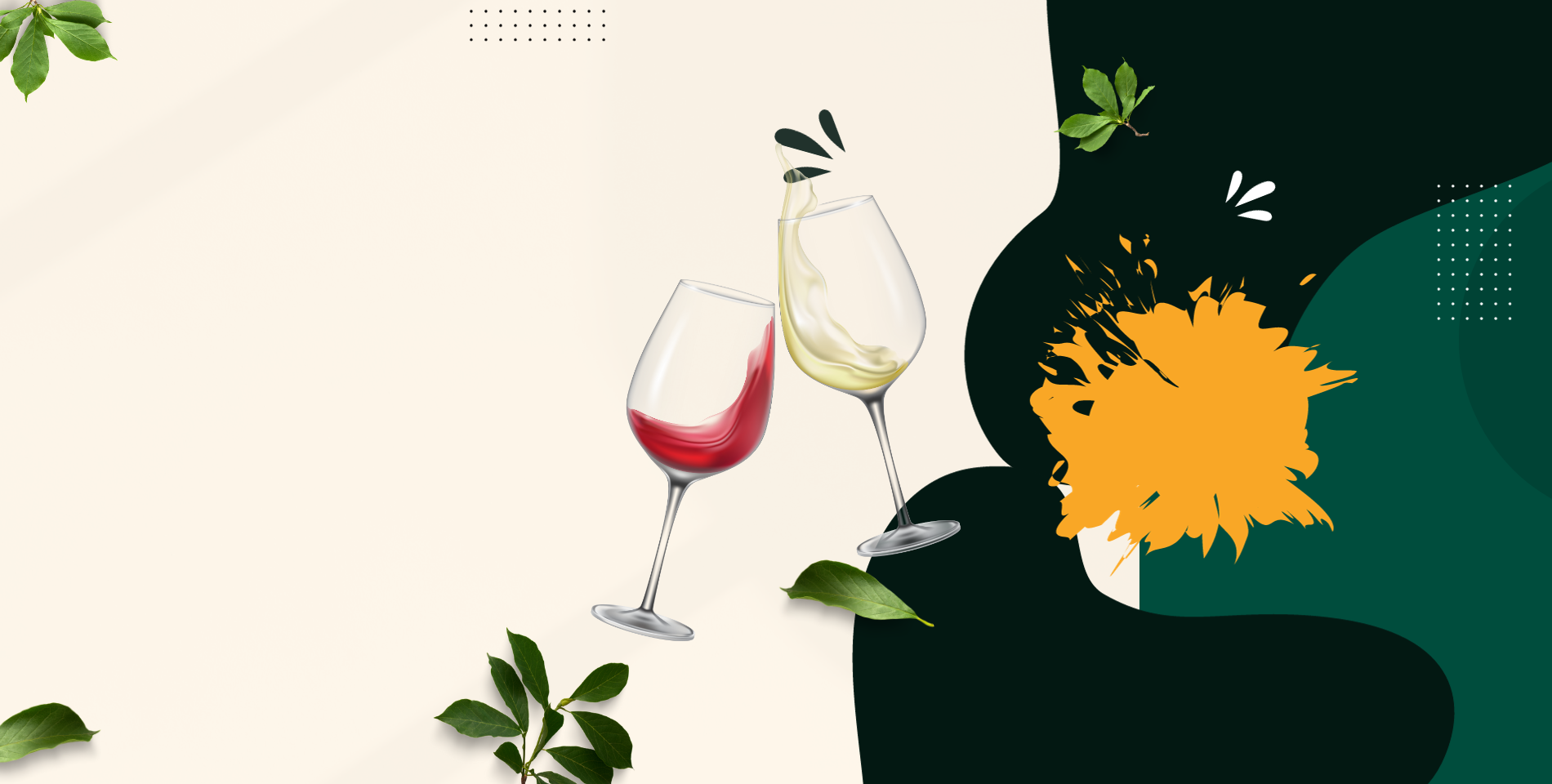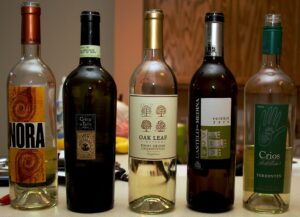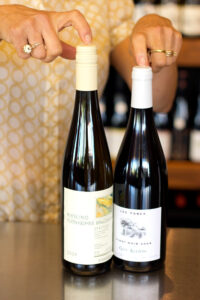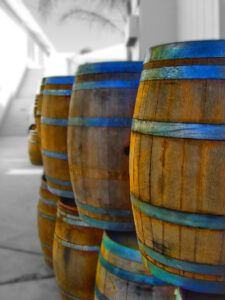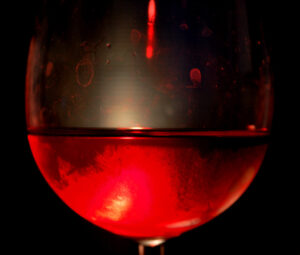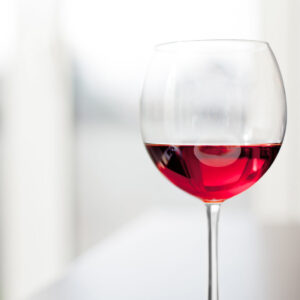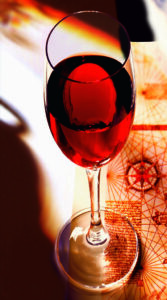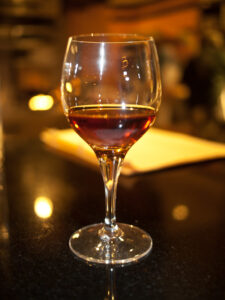Wine is a timeless beverage enjoyed across cultures and generations. But how long does a bottle of wine actually last? Whether you’re a casual drinker or a connoisseur, understanding the shelf life of wine can help you make the most of each bottle.
In this guide, we’ll explore the factors that affect wine longevity and offer tips on how to store it properly.
Factors Affecting Wine Longevity
- Type of Wine: Red, white, and sparkling wines all have different shelf lives.
- Alcohol Content: Higher alcohol content generally means longer shelf life.
- Storage Conditions: Temperature, humidity, and light can all affect how long wine lasts.
- Seal: Screw caps, corks, and synthetic corks can also impact longevity.
How Long Does Wine Typically Last After Opening?
Once you open a bottle, the wine starts to change. Here’s a simple guide:
- Red Wine: Lasts 3-7 days. Keep it in a cool place.
- White Wine: Lasts 3-5 days. Keep it in the fridge.
- Rosé Wine: Lasts 3-5 days. Keep it in the fridge.
- Sparkling Wine: Lasts 1-3 days. Keep it in the fridge.
- Fortified Wine: Lasts up to 28 days. It has more alcohol, so it lasts longer.
How Long Does Wine Last Unopened?
So you’ve got a bottle of wine you’re saving for a special occasion. Or maybe you just forgot about it. Either way, you’re probably wondering how long it will last unopened. Good news! Unopened wine can last a lot longer than you might think. Here’s a quick rundown:
The Basics: How Long Unopened Wine Lasts
- Cheap Red Wine: 3-5 years. These are usually meant to be drunk soon.
- Expensive Red Wine: Up to 20 years. These get better with age.
- White Wine: 1-3 years. Best when fresh.
- Sparkling Wine: 1-3 years. Don’t wait too long!
- Fortified Wine: Up to 100 years. Yes, you read that right!
What Makes Unopened Wine Last Longer?
Here are some factors that can help your unopened wine last longer:
- Quality: Better wine, longer life.
- Storage: Keep it in a cool, dark place.
- Seal: Corks are better for long-term storage than screw caps.
How to Store Unopened Wine
- Temperature: Keep it between 55-65°F (13-18°C).
- Position: Store it on its side to keep the cork wet.
- Darkness: Light can ruin wine, so keep it in the dark.
How To Store Unopened Wine Correctly (5 Tips)
So you’ve got a bottle of wine you want to keep in tip-top shape until you’re ready to pop the cork. Storing unopened wine correctly is crucial for preserving its flavor and quality. Here are five simple yet effective tips to ensure your wine ages like fine art rather than turning into vinegar.
1. Keep It Cool, But Not Too Cold
Temperature is the most critical factor in wine storage. Aim for a stable temperature between 55-65°F (13-18°C). Too hot and your wine will age too quickly; too cold and it could freeze, causing the cork to push out.
2. Lay It Down
Store your wine bottles on their side, especially if they have a cork. This keeps the cork moist, preventing it from drying out and letting air into the bottle, which could spoil the wine.
3. Darkness Is Your Friend
Light, especially sunlight, can degrade wine over time. Store your bottles in a dark place, away from direct sunlight or bright indoor lights.
4. Humidity Matters
A humidity level of about 60-70% is ideal for wine storage. Too dry, and the cork could dry out; too humid, and mold could form. Some wine coolers come with built-in humidity control.
5. Keep It Steady
Avoid storing your wine in places where the temperature fluctuates, like near a heater or air conditioner. Consistency is key to preserving your wine’s quality.
How Long Does Opened / Uncorked Wine Last?
So you’ve opened a bottle of wine and enjoyed a glass or two. Now, you’re wondering how long you can keep the rest of it without compromising its taste. The lifespan of opened wine can vary, but here’s a straightforward guide to help you make the most of your uncorked bottle.
Red Wine
Once opened, a bottle of red wine can last up to 3-5 days if stored properly. Keep it in a cool, dark place and reseal it with a wine stopper or the original cork. If you notice a sour or vinegary smell, it’s time to say goodbye.
White Wine
White wine has a slightly shorter shelf life than red. You can expect it to last about 2-3 days after opening. Like red wine, it should be stored in a cool place and resealed tightly.
Sparkling Wine
The bubbles in sparkling wine start to dissipate as soon as you pop the cork. For the best experience, consume it within 1-2 days. Special sparkling wine stoppers can help prolong its life by another day or so.
Fortified Wine
Wines like Port or Sherry are more robust due to the addition of spirits. They can last up to a week or even longer when stored correctly.
Dessert Wine
Sweet wines with high sugar content can last a bit longer, usually up to a week. However, their flavors can start to dull after a few days.
Does Wine Go Bad?
You might be wondering, “Can wine actually spoil?” The answer is yes, but it’s a bit more nuanced than that. Let’s break it down.
Spoilage vs. Aging
Firstly, it’s important to distinguish between wine going bad and wine aging. Aging can enhance the flavors and complexity of the wine, but only up to a point. After that, the wine starts to deteriorate.
Signs of Spoiled Wine
Here are some telltale signs that your wine has gone bad:
- Smell: If your wine smells like wet cardboard, vinegar, or mold, it’s likely spoiled.
- Taste: A flat or sour taste is a clear indicator that the wine is past its prime.
- Color: Changes in color, such as a deep yellow in white wines or a brownish hue in reds, can signify spoilage.
- Texture: If the wine feels syrupy or develops a fizz, it’s time to toss it.
Is Spoiled Wine Harmful?
Drinking spoiled wine won’t make you sick, but it won’t be a pleasant experience either. It’s best to use your senses to judge whether a wine is still good to drink.
What Causes Wine to Spoil?
Several factors can contribute to wine spoilage:
- Oxygen Exposure: Once a bottle is opened, oxygen starts to interact with the wine, leading to spoilage over time.
- Temperature Fluctuations: Storing wine in an environment with unstable temperatures can accelerate spoilage.
- Light: Excessive light, especially sunlight, can degrade the quality of the wine.
Does Wine Expire?
Ah, the age-old question: “Does wine have an expiration date?” The short answer is yes, but it’s not as straightforward as the expiration date on a carton of milk. Let’s dive into the details.
The Shelf Life of Wine
Wine doesn’t come with a printed expiration date, but it does have a shelf life. For most wines, especially those meant to be consumed young, this can range from a few months to a few years. Fine wines, on the other hand, can last decades if stored properly.
Factors Affecting Wine’s Longevity
Several elements come into play when determining how long a wine will last:
- Type of Wine: Red wines generally last longer than whites, and fortified wines like port can last even longer.
- Quality: Higher-quality wines are often made to age and will have a longer shelf life.
- Storage Conditions: Proper storage can extend a wine’s life significantly.
How to Check for Freshness
If you’re unsure whether your wine is still good, here are some quick checks:
- Smell: A musty or sour aroma is a red flag.
- Color: Look for any unusual changes in color.
- Taste: If it tastes off, it probably is.
What Happens if You Drink Expired Wine?
Drinking expired wine is generally not harmful, but it won’t taste very good. You’ll miss out on the flavors and nuances that make wine enjoyable.
How Long Does Red Wine Last Unopened?
Ever found yourself staring at that bottle of red wine you received as a gift years ago, wondering if it’s still good? You’re not alone. Let’s get to the bottom of how long red wine can actually last when it’s unopened.
The Basics: Red Wine’s Shelf Life
Unlike perishable foods, unopened red wine doesn’t spoil quickly. In fact, it can last anywhere from 3 to 5 years for most table wines. Some high-quality reds can even improve with age and last for decades!
What Makes Red Wine Different?
Red wines have a longer shelf life compared to whites, thanks to their higher tannin content. Tannins act as a natural preservative, allowing the wine to age gracefully.
Factors That Matter
- Quality: Better wines are made to age and will last longer.
- Storage: Keep your wine in a cool, dark place, ideally at a consistent temperature.
- Wine Type: Cabernet Sauvignon tends to last longer than a Pinot Noir, for example.
Signs Your Red Wine Has Gone Bad
If you’re unsure, here are some signs that your red wine has passed its prime:
- Color: A brownish hue can indicate oxidation.
- Smell: A musty or vinegary smell is a bad sign.
- Cork Condition: If the cork is pushed out or has mold, it’s best to avoid the wine.
How Long Does White Wine Last Unopened?
So you’ve got a bottle of white wine sitting in your pantry or fridge, and you’re wondering, “Is this still good?” Don’t worry; you’re not the only one. Let’s dive into how long white wine can last when it’s unopened.
The Lowdown: White Wine’s Lifespan
White wine generally has a shorter shelf life compared to red wine. Most unopened bottles of white wine will last between 1 to 2 years. However, some high-quality whites can last up to 4 years.
What Sets White Wine Apart?
White wines usually have lower tannin levels and are more sensitive to light and temperature changes. This makes them less durable than red wines.
Key Factors to Consider
- Quality: Premium white wines, like Chardonnay, can last longer than budget-friendly options.
- Storage: A cool, dark place with a stable temperature is ideal for storing white wine.
- Wine Type: A Sauvignon Blanc will generally have a shorter shelf life than an oaked Chardonnay.
Telltale Signs Your White Wine May Be Off
If you’re in doubt, here are some indicators that your white wine might not be good anymore:
- Color: A darker, more golden color could mean the wine has oxidized.
- Smell: Aroma is key; if it smells like wet cardboard or vinegar, it’s time to toss it.
- Cork Condition: A moldy or pushed-out cork is a red flag.
How Long Does Unopened Rosé Last?
Ah, rosé—the perfect blend of red and white, a wine that screams summer and sophistication. But how long can you keep that beautiful bottle of pink bliss? Let’s get straight to the point.
The Quick Answer: Rosé’s Shelf Life
Unopened bottles of rosé typically last for about 1 to 2 years. However, higher-quality rosés can last up to 3 years if stored correctly.
What Makes Rosé Unique?
Rosé is a versatile wine that sits between red and white in terms of acidity and tannin levels. Its unique characteristics make it a bit more delicate, affecting its longevity.
Factors That Affect Longevity
- Quality: As with any wine, higher-quality rosés will last longer.
- Storage: Consistent, cool temperatures and a dark environment are your rosé’s best friends.
- Wine Type: Dry rosés generally last longer than sweet ones.
Signs Your Rosé Might Be Past Its Prime
If you’re unsure whether your rosé is still good, here are some signs to look for:
- Color: If it’s lost its vibrant pink hue and looks more orange, it might be past its best.
- Smell: A musty or overly sour smell is a bad sign.
- Cork Condition: Any signs of mold or a cork that seems to be pushing out are red flags.
How Long Does Port Last Unopened?
Port wine—rich, complex, and often enjoyed as a dessert wine or after-dinner sipper. But what if you’ve got a bottle you’re saving for a special occasion? How long can you keep it on the shelf? Let’s dive in.
The Quick Answer: Port’s Longevity
Good news for port lovers—unopened bottles of port can last anywhere from 20 to 40 years, depending on the type and quality. Vintage ports can even last up to a century if stored correctly!
Types of Port and Their Lifespan
- Vintage Port: The crème de la crème of port, these can last up to 100 years.
- Tawny Port: Aged in wooden barrels, these can last up to 40 years.
- Ruby Port: The youngest style, these are best consumed within 3 to 5 years.
Factors Affecting Port’s Longevity
- Quality: Higher-quality ports will naturally have a longer shelf life.
- Storage Conditions: A cool, dark place with consistent temperature is ideal.
- Seal: Make sure the cork or cap is in good condition to prevent oxidation.
How to Know if Your Port Has Gone Bad
Here are some signs that your port may have passed its prime:
- Color: A change in color, usually to a brownish hue.
- Smell: An off-putting, musty odor.
- Cork Condition: If the cork is damaged or moldy, it’s time to toss it.
How Long Does Dessert Wine Last Unopened?
Ah, dessert wines—the sweet nectar that perfectly caps off a meal or serves as a treat all on its own. But what if you’ve got a bottle you’re saving for a special moment? How long can it sit unopened without losing its charm? Let’s find out.
The Quick Answer: Sweet but Sturdy
Dessert wines are generally more robust than you might think. An unopened bottle can last anywhere from 10 to 20 years, depending on the type and quality. Some high-end dessert wines can even age gracefully for several decades!
Types of Dessert Wine and Their Lifespan
- Sauternes: Known for its complexity, it can last up to 20 years.
- Ice Wine: A unique treat that can last up to 10 years.
- Late Harvest Wines: These can age well for up to 15 years.
- Muscat: Best consumed within 5 to 10 years.
Factors That Influence Longevity
- Sugar Content: Higher sugar levels act as a preservative.
- Alcohol Content: A higher ABV can also extend the wine’s life.
- Storage Conditions: Consistent, cool temperatures and darkness are key.
Signs Your Dessert Wine May Have Spoiled
- Color: A noticeable change, usually darker.
- Smell: A sour or musty odor is a red flag.
- Cork Condition: A damaged or moldy cork is a bad sign.
How Long Does Sparkling Wine Last Unopened?
So, you’ve got a bottle of sparkling wine sitting in your wine rack, and you’re wondering, “How long can I keep this bubbly beauty?” Whether it’s for a celebration or just a fizzy indulgence, let’s dive into how long sparkling wine can last unopened.
The Quick Answer: A Fizz with a Finite Life
Unlike some of its still counterparts, sparkling wine has a shorter shelf life. Generally, non-vintage sparkling wines should be consumed within 3 to 5 years, while vintage bottles can last up to 10 years if stored correctly.
Types of Sparkling Wine and Their Lifespan
- Champagne: The crème de la crème can last up to 10 years.
- Prosecco: Best enjoyed within 3 to 4 years.
- Cava: This Spanish star can go up to 5 years.
- Domestic Sparklers: Usually good for 3 to 5 years.
Factors That Affect Longevity
- Pressure: The carbonation in sparkling wine can act as a preservative but also makes it more sensitive to temperature changes.
- Quality: Higher-end bottles generally last longer.
- Storage: As always, cool, dark, and stable conditions are your friends.
Signs Your Sparkling Wine Might Be Past Its Prime
- Color: A dull or brownish hue is a warning sign.
- Smell: A lack of fruitiness or a vinegary scent is not good.
- Cork Condition: If it’s protruding or damaged, steer clear.
Here’s a comprehensive table summarizing the most important information about the longevity of various types of unopened wines:
| Wine Type | General Lifespan Unopened | Optimal Storage Conditions | Signs of Aging or Spoilage |
|---|---|---|---|
| Red Wine | 3-5 years (up to 20 for premium) | Cool, dark, 55-65°F (13-18°C) | Dull color, sour smell |
| White Wine | 1-3 years | Cool, dark, 55-65°F (13-18°C) | Yellowing, vinegar smell |
| Rosé | 1-2 years | Cool, dark, 55-65°F (13-18°C) | Dull pink, off smell |
| Port | 20-30 years | Cool, dark, 55-65°F (13-18°C) | Dull color, musty smell |
| Dessert Wine | 10-20 years | Cool, dark, 55-65°F (13-18°C) | Dull color, off smell |
| Sparkling Wine | 3-5 years (up to 10 for vintage) | Cool, dark, 45-55°F (7-13°C) | Dull bubbles, sour smell |
This table should serve as a quick reference guide for understanding how long your unopened bottles of wine will last, how to store them optimally, and what signs to look out for to determine if they have aged or spoiled.
Frequently Asked Questions About Wine (FAQs)
1. Can I Drink Expired Wine?
While wine doesn’t “expire” in the traditional sense, it can go bad. Drinking spoiled wine is generally not harmful but may not be pleasant.
2. How Can I Tell if My Wine Has Gone Bad?
Look for changes in color, a sour or musty smell, and a flat or vinegary taste.
3. Does Red Wine Last Longer Than White Wine?
Generally, red wines have a longer shelf life compared to white wines due to the tannins that act as a natural preservative.
4. Can I Store Opened Wine in the Refrigerator?
Yes, storing opened wine in the refrigerator can extend its life, but it’s best to consume it within 3-5 days.
5. What’s the Best Temperature for Storing Wine?
The optimal temperature varies depending on the type of wine. For reds, it’s usually 55-65°F, and for whites, it’s 45-55°F.
6. Can I Re-Cork My Wine?
Yes, you can re-cork your wine, but it’s better to use a wine stopper for a more airtight seal.
7. Is Older Wine Always Better?
Not necessarily. Some wines are meant to be consumed young. Always check the wine’s vintage and recommended aging period.
8. Can I Store Wine Upright?
It’s better to store wine on its side to keep the cork moist, which prevents air from entering the bottle.
9. Does Light Affect Wine?
Yes, direct sunlight or bright light can adversely affect the quality of wine. It’s best to store wine in a dark place.
10. Can I Freeze Wine?
While it’s not recommended, freezing wine won’t ruin it but may alter its taste and texture.
Feel free to reach out if you have more questions about wine storage and longevity!
Conclusion
Understanding the shelf life of wine can enhance your drinking experience and prevent waste. Always remember to store your wine under optimal conditions to extend its longevity. Cheers to making the most of every bottle!


